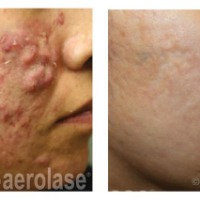
Model Photo
A new study from Mederma? has found that women's happiness and confidence in their own skin is largely attributed to life experience and accomplishments, and much less to skin imperfections. However, most of those surveyed also agreed that corrected those imperfections does improve overall self confidence. The Wear Your Skin Proudly? survey is sponsored by Mederma, a medical manufacturing company that makes skin care products for diminishing the appearance of stretch marks and scars.
The study found that 66% of women polled say that they're generally happy with their appearance and 65% say that their skin imperfections don't impact their self-confidence much. However, 42% of those women still said they felt their self confidence would improve if they could repair those imperfections.
Boca Raton licensed psychologist Dr. Marci Fox, coauthor of Think Confident, Be Confident: A Four-Step Program to Eliminate Doubt and Achieve Lifelong Self-Esteem says, "Confidence comes from believing in yourself and happiness increases when you take stock of who you are as a whole." She says that when people are struggling with their confidence because of physical issues, it's best not to focus on these problems. "Don't put a magnifying glass to one thing and let it define you. Recognize that you have intellectual, personality, physical, and social attributes as well as skills, roles, experiences and accomplishments that you value."
Body confidence also seems to increase with age. 48% of women said they're more confident about their bodies now than they were 10 years ago. Younger women tend to be more bothered by their stretch marks and scars and focus on these imperfections more than those women 55 and older.

Actual Results of Mederma Treatment
Dr. Fox also says that in her work, she's found that older women tend to see themselves in a more holistic way and they are able to enjoy their multitude of qualities. "Confidence grows when you continue to update the way you see yourself and give yourself the credit you deserve," she says.
"Don't be afraid to use a product or ask for help," says Dr. Fox. "The Mederma Wear Your Skin Proudly survey found that nearly 1 in 2 women who have stretch marks say they have negative feelings about them. This is a great example of how a woman can choose to actively do something to make herself feel better about her appearance."
Methods to improve the appearance of stretch marks and scars include covering them up with clothes, using creams or lotions, and concealing them with makeup. A smaller percentage of women said they have tried, or would try, other measures such as self-tanners, dermabrasion, and/or surgery. Another available treatment for stretch marks and scars is fractional resurfacing and some physicians say they've seen great improvement in stretch marks using eMatrix.






